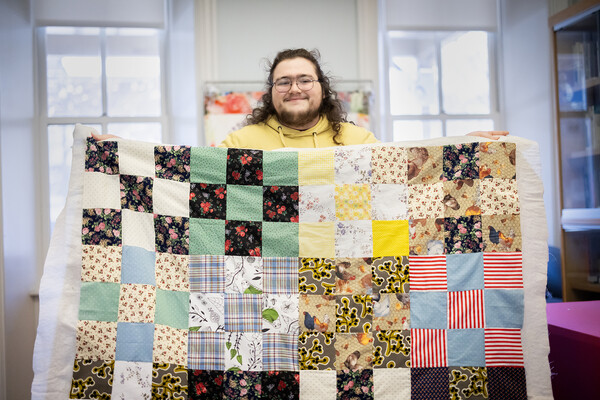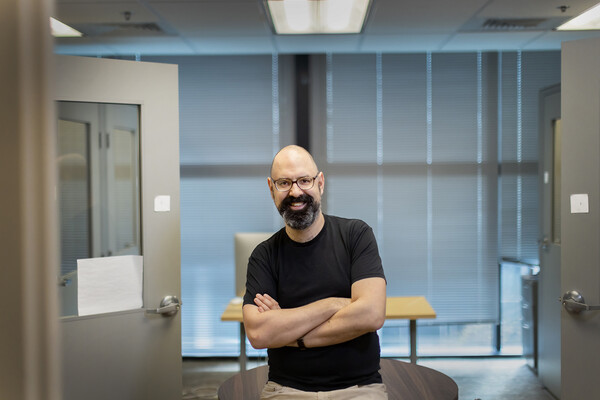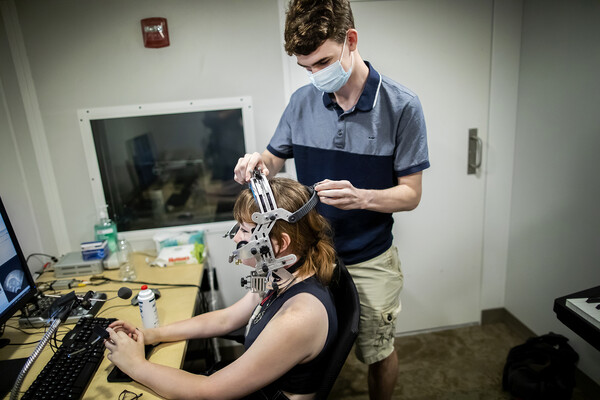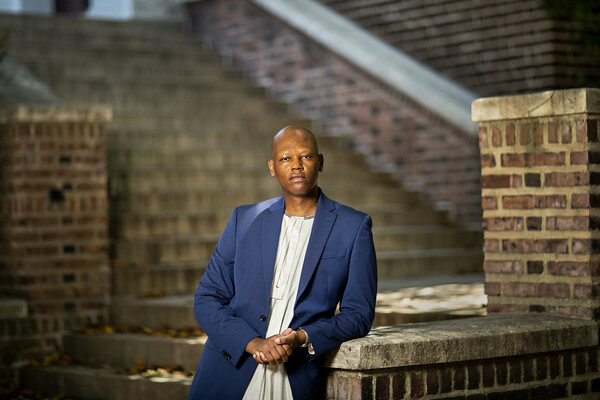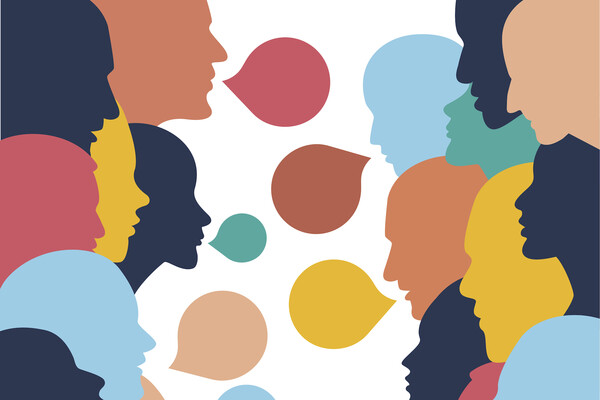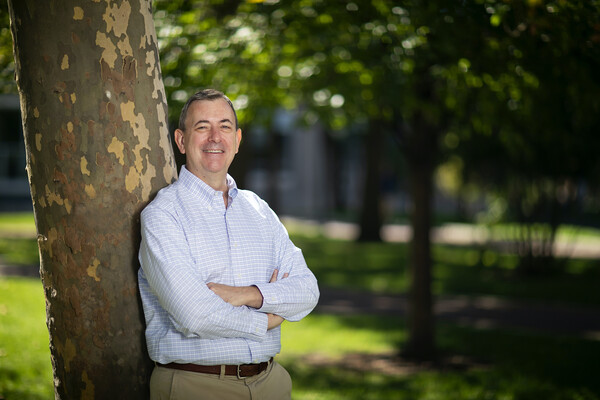4/16
Linguistics
Who, What, Why: Luke Godsey’s Appalachian quilt
Luke Godsey, a second-year student in the College of Arts and Sciences, has created a quilt for the Penn Women’s Center as part of a new art series.
Centuries of ‘TikTalk’
The media popularity of the vocal trend called “TikTalk,” or a combination of uptalkand vocal fry, is actually nothing new, says linguist Mark Liberman.
A centuries-old word with a modern twist
The acceptable use of a singular “they” pronoun made official a linguistic trend already in use for centuries. People who are not represented by binary pronouns say it’s a helpful step, but a small one.
What fabricated languages can teach us about real ones
Linguist Gareth Roberts of the School of Arts & Sciences uses “alien” languages and interactive games to show how social pressures shape our communication.
The language of loneliness and depression, revealed in social media
By analyzing Facebook posts, Penn researchers found that words associated with depression are often tied to emotions, whereas those associated with loneliness are linked to cognition.
Singing, speech production, and the brain
This summer, rising second-years Audrey Keener and Nicholas Eiffert worked in the lab of Penn linguist Jianjing Kuang studying vowel articulation in song, running an in-person experiment and built a corpus of classical recordings by famous singers.
Who, What, Why: Kimeze Teketwe brings Luganda to Penn
The GSE master’s student from Uganda taught the first ever course on this language in the spring of 2022. This fall the program continues with another intro class, followed by an advanced class next spring.
New journal focuses on how the mind and brain process language
The open-access, online-only Glossa Psycholinguistics recently published its inaugural issue after more than two years of effort from Penn linguist Florian Schwarz and colleagues around the world.
People imitate accent features they expect to hear, even without hearing them
Research from postdoc Lacey Wade confirmed this idea, what she calls expectation-driven convergence, in a controlled experiment for the first time. The work reveals just how much the subconscious factors into the way people speak.
A partnership to preserve Kashaya
Since the 1980s, linguist Eugene Buckley has studied this Native American language, now spoken by just a dozen or so people in northern California. In collaboration with members and descendants of the Kashia Band of Pomo Indians, he’s built a database of Kashaya words, sounds, and stories.
In the News
Presidential pauses? What those ‘ums’ and ‘uhs’ really tell us about candidates for the White House
Mark Liberman of the School of Arts & Sciences says that Barack Obama used hesitation markers like “uh” and “um” roughly every 19 words during one interview. By comparison, he says, Donald Trump seldom uses those markers.
FULL STORY →
Online, ‘unalive’ means death or suicide. Experts say it might help kids discuss those things
Andrea Beltrama of the School of Arts & Sciences explains language has always evolved, new words have always popped up, and these shifts are known as a “lexical innovation.”
FULL STORY →
Philadelphia accent turns water to wooder. Researchers try to explain why
William Labov of the School of Arts & Sciences co-authored a 2013 paper that examined Northern influences on the Philadelphia dialect.
FULL STORY →
Being bilingual and Latinx in higher education
Nelson Flores of the Graduate School of Education explores the challenges faced by bilingual Latinx students in the United States.
FULL STORY →
Are you a busybody, a hunter, or a dancer? A new book about curiosity reveals all
Dani S. Bassett of the School of Arts & Sciences speaks on their new book, “Curious Minds: The Power of Connection,” co-authored with identical twin Perry Zurn, which investigates the foundations of curiosity.
FULL STORY →
The ‘rez accent’: Native Americans are making English their own
William Labov of the School of Arts & Sciences notes that while some Native American accents are fading, others are growing stronger.
FULL STORY →




